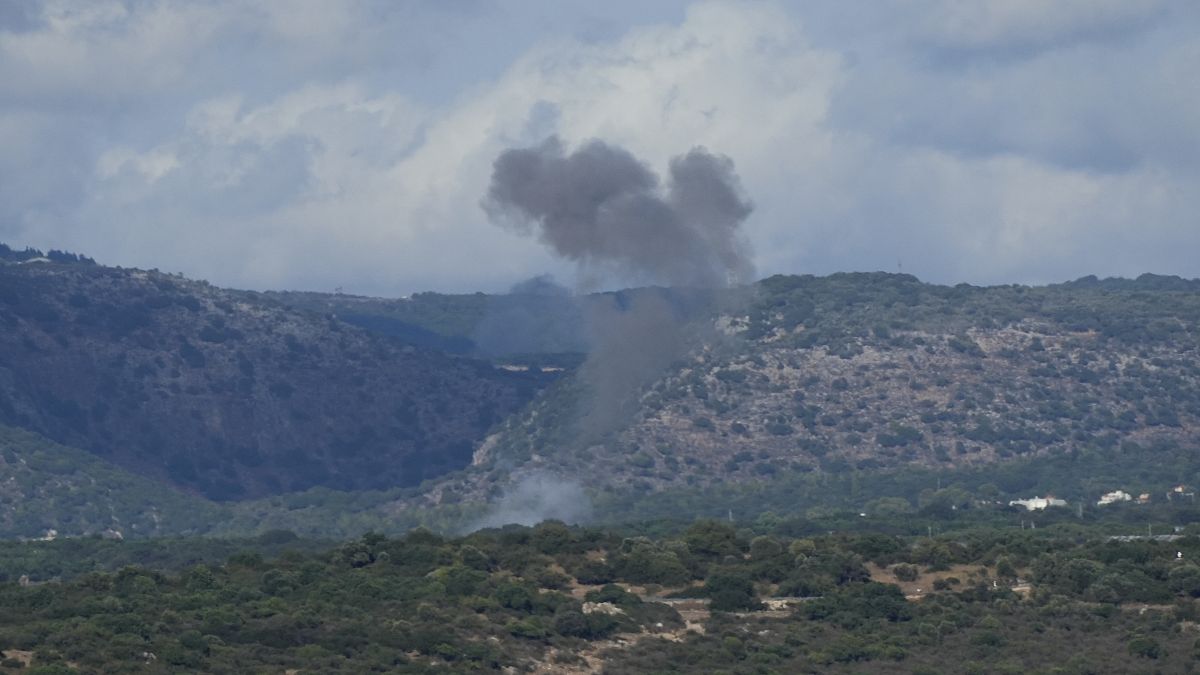Israel has recently launched a fresh wave of strikes on southern Lebanon in an attempt to target and destroy Hezbollah’s infrastructure, according to the Israel Defence Forces (IDF). The attack was in response to a similar assault by Hezbollah, which had launched drone strikes into northern Israel. As tensions escalated, Hezbollah leader Hassan Nasrallah vowed “just punishment” for the attacks, which killed more than 30 individuals and wounded thousands. The attacks were believed to be carried out by Israel and were considered a severe blow that crossed a red line by Nasrallah.
The Israeli fighter jets broke the sound barrier while flying low above the Lebanese capital of Beirut during Nasrallah’s televised speech. Nasrallah warned Israeli Prime Minister Benjamin Netanyahu that military escalation and all-out war would not be able to return Israeli residents to the border. The explosions of pagers and walkie-talkies used by Hezbollah appeared to be the culmination of a months-long operation by Israel to target as many Hezbollah members as possible in one go. The attacks resulted in casualties among both Hezbollah fighters and civilians connected to the organization’s social branches.
Although Israel has not officially claimed responsibility for the attacks, a former senior official in Israel’s Mossad intelligence agency described the operation as successful. Sima Shine, a senior researcher at the Institute for National Security Studies, highlighted the intelligence, technology, and operational capabilities that played a crucial role in the success of the operation. The focus of the attacks was on Hezbollah operatives rather than civilians, although some civilians were injured in the process. The Israeli government has now declared a “new era” of war aimed at ending Hezbollah’s cross-border fire to allow Israelis to return to their homes near the border.
In response to media publications alleging that a Bulgarian company had supplied Hezbollah with exploding devices, Bulgarian authorities have rejected these claims. The publications suggested that explosive devices had been shipped through Bulgaria’s territory to Hezbollah. However, the authorities denied these claims, highlighting the importance of avoiding misinformation and inaccurate accusations. As tensions continue to escalate between Israel and Hezbollah, it remains to be seen how the situation will unfold in the coming days and weeks.
The recent developments in the conflict between Israel and Hezbollah have raised concerns about the escalation of violence in the region. The attacks and counterattacks have resulted in casualties and significant damage to infrastructure, increasing tensions between the two sides. The involvement of other countries in the conflict, such as Bulgaria, adds another layer of complexity to the situation. As both Israel and Hezbollah vow to continue their operations, it is essential for international stakeholders to work towards de-escalation and a peaceful resolution to prevent further loss of life and destruction.
The international community has a critical role to play in mediating between Israel and Hezbollah to prevent further violence and promote dialogue. The recent attacks and counterattacks have highlighted the need for diplomatic efforts to address the underlying issues fueling the conflict. By engaging in constructive dialogue and negotiations, it may be possible to reach a sustainable ceasefire and pave the way for lasting peace in the region. As the situation continues to evolve, it is crucial for all parties involved to prioritize the well-being of civilians and work towards a peaceful resolution that addresses the root causes of the conflict.





















